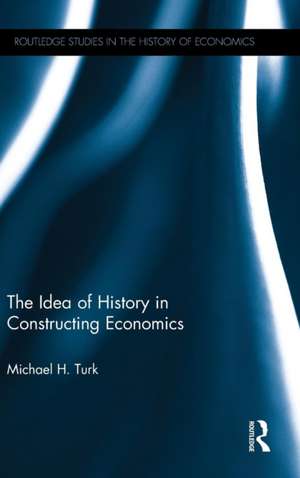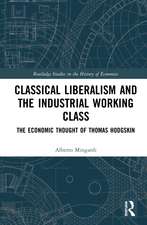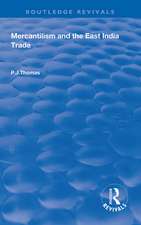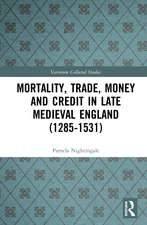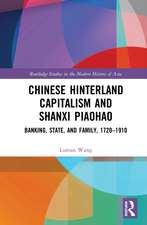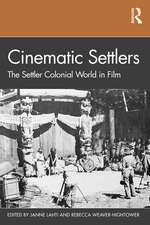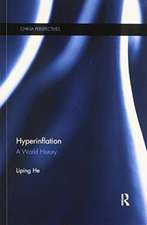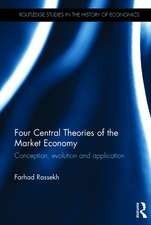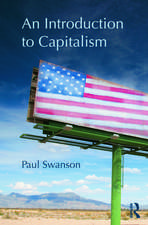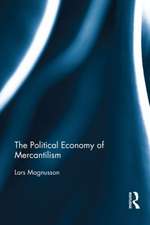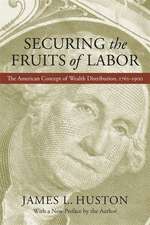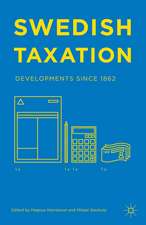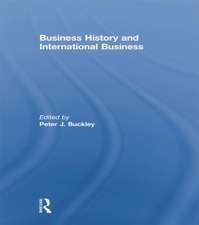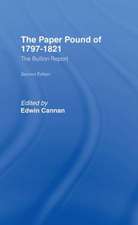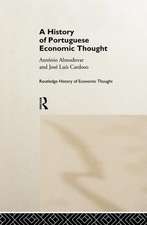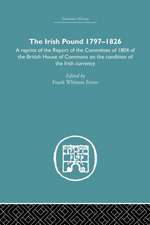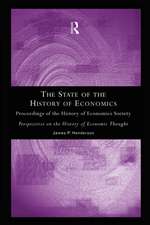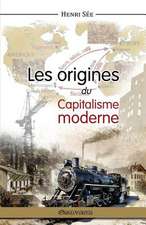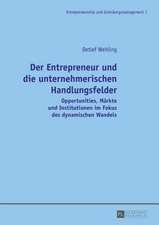The Idea of History in Constructing Economics: Routledge Studies in the History of Economics
Autor Michael H. Turken Limba Engleză Hardback – 25 aug 2015
In this new volume, Turk explores the relationship between economics and history, including the often fraught one between economics and economic history, making the case that economics does in fact require the proper grounding in history that has so often been ignored. This work challenges the attempt to link economics with other, more clearly ‘scientific’ disciplines as flawed and fundamentally wrongheaded. A key element of this book is its examination of the gaps and associations that exist in, or are seen through, linkages with thermodynamics, classical mechanics , biology, literature, mathematics, philosophy, and sociology. This exploration is frequently undertaken through study of the work of one or more major figures in the history of economic thought, ranging from Quesnay and Smith, through Walras and Max Weber, to Robinson, Krugman, David, and Arthur.
Through the possibility of an alternative to the gaps noted in each such comparison, the underlying, necessary connection between economics and history can be brought out. The book concludes by exploring the basis for the positive construction of a historical economics. This book is suited for those who study history of economic thought and philosophy of economics.
| Toate formatele și edițiile | Preț | Express |
|---|---|---|
| Paperback (1) | 251.32 lei 6-8 săpt. | |
| Taylor & Francis – 12 dec 2019 | 251.32 lei 6-8 săpt. | |
| Hardback (1) | 729.55 lei 6-8 săpt. | |
| Taylor & Francis – 25 aug 2015 | 729.55 lei 6-8 săpt. |
Din seria Routledge Studies in the History of Economics
-
 Preț: 370.72 lei
Preț: 370.72 lei -
 Preț: 302.54 lei
Preț: 302.54 lei - 8%
 Preț: 392.82 lei
Preț: 392.82 lei -
 Preț: 311.28 lei
Preț: 311.28 lei - 9%
 Preț: 1003.10 lei
Preț: 1003.10 lei -
 Preț: 665.68 lei
Preț: 665.68 lei - 9%
 Preț: 935.39 lei
Preț: 935.39 lei -
 Preț: 384.63 lei
Preț: 384.63 lei -
 Preț: 280.74 lei
Preț: 280.74 lei -
 Preț: 326.99 lei
Preț: 326.99 lei -
 Preț: 318.31 lei
Preț: 318.31 lei -
 Preț: 214.15 lei
Preț: 214.15 lei -
 Preț: 310.43 lei
Preț: 310.43 lei -
 Preț: 326.82 lei
Preț: 326.82 lei -
 Preț: 308.97 lei
Preț: 308.97 lei -
 Preț: 324.46 lei
Preț: 324.46 lei -
 Preț: 395.81 lei
Preț: 395.81 lei -
 Preț: 392.71 lei
Preț: 392.71 lei - 26%
 Preț: 850.91 lei
Preț: 850.91 lei - 27%
 Preț: 995.39 lei
Preț: 995.39 lei - 18%
 Preț: 1005.01 lei
Preț: 1005.01 lei - 18%
 Preț: 1002.60 lei
Preț: 1002.60 lei - 26%
 Preț: 1046.46 lei
Preț: 1046.46 lei - 18%
 Preț: 1280.31 lei
Preț: 1280.31 lei - 18%
 Preț: 1055.51 lei
Preț: 1055.51 lei - 18%
 Preț: 1055.51 lei
Preț: 1055.51 lei - 28%
 Preț: 987.72 lei
Preț: 987.72 lei - 25%
 Preț: 824.17 lei
Preț: 824.17 lei - 18%
 Preț: 1061.93 lei
Preț: 1061.93 lei - 18%
 Preț: 716.32 lei
Preț: 716.32 lei - 18%
 Preț: 1006.07 lei
Preț: 1006.07 lei - 18%
 Preț: 1069.92 lei
Preț: 1069.92 lei - 12%
 Preț: 342.67 lei
Preț: 342.67 lei - 26%
 Preț: 991.34 lei
Preț: 991.34 lei - 18%
 Preț: 1056.00 lei
Preț: 1056.00 lei - 18%
 Preț: 1076.53 lei
Preț: 1076.53 lei - 18%
 Preț: 698.08 lei
Preț: 698.08 lei - 22%
 Preț: 332.02 lei
Preț: 332.02 lei - 18%
 Preț: 1169.78 lei
Preț: 1169.78 lei - 18%
 Preț: 1059.84 lei
Preț: 1059.84 lei - 30%
 Preț: 852.88 lei
Preț: 852.88 lei - 25%
 Preț: 830.10 lei
Preț: 830.10 lei - 18%
 Preț: 1125.78 lei
Preț: 1125.78 lei - 18%
 Preț: 1062.98 lei
Preț: 1062.98 lei - 18%
 Preț: 847.96 lei
Preț: 847.96 lei - 18%
 Preț: 953.01 lei
Preț: 953.01 lei - 18%
 Preț: 1168.76 lei
Preț: 1168.76 lei
Preț: 729.55 lei
Preț vechi: 889.70 lei
-18% Nou
Puncte Express: 1094
Preț estimativ în valută:
139.60€ • 146.14$ • 115.51£
139.60€ • 146.14$ • 115.51£
Carte tipărită la comandă
Livrare economică 05-19 aprilie
Preluare comenzi: 021 569.72.76
Specificații
ISBN-13: 9781138808898
ISBN-10: 113880889X
Pagini: 250
Dimensiuni: 156 x 234 x 20 mm
Greutate: 0.5 kg
Ediția:1
Editura: Taylor & Francis
Colecția Routledge
Seria Routledge Studies in the History of Economics
Locul publicării:Oxford, United Kingdom
ISBN-10: 113880889X
Pagini: 250
Dimensiuni: 156 x 234 x 20 mm
Greutate: 0.5 kg
Ediția:1
Editura: Taylor & Francis
Colecția Routledge
Seria Routledge Studies in the History of Economics
Locul publicării:Oxford, United Kingdom
Public țintă
Postgraduate and UndergraduateCuprins
1. The Fault Line of Axiomatization 2. The Mathematical Turn In Economics 3. The Arrow of Time In Economics 4. Of Puzzles And Problems 5. Economics Pursuing The Mold of Evolutionary Biology 6. Economics as Plausible Conjecture 7. Max Weber and The Lost Thread Of Historical Economics 8. Historical Proof in Economics 9. The Fraught Relation Between Economics And Economic History 10. Toward A Positive Construction of Historical Economics
Recenzii
‘Readers will be impressed by Turk's extensive knowledge across so many trains of thought, controversies, and interpretations, both in the fields of the history of economic thought and economic history itself.’ - Kayoko Misaki, Professor of Economics, Shiga University, Japan.
‘The book […] marks a striking difference from the emphasis between economy and history contained in Turgot's, Smith's, and Marx's political economy. Turk shows how [...] attempts to make economics a "science" by analogizing it with classical mechanics were mistaken, and suggests how this decisive failure, which would predestine the method of neoclassical economics, could have been avoided [...]’ - Kayoko Misaki, Professor of Economics, Shiga University, Japan.
'...a nice collection of sophisticated reflections on the nature of economics from different perspectives and in comparison with other disciplines.' - Marcel Boumans, Utrecht School of Economics, Journal of the History of Economic Thought
‘The book […] marks a striking difference from the emphasis between economy and history contained in Turgot's, Smith's, and Marx's political economy. Turk shows how [...] attempts to make economics a "science" by analogizing it with classical mechanics were mistaken, and suggests how this decisive failure, which would predestine the method of neoclassical economics, could have been avoided [...]’ - Kayoko Misaki, Professor of Economics, Shiga University, Japan.
'...a nice collection of sophisticated reflections on the nature of economics from different perspectives and in comparison with other disciplines.' - Marcel Boumans, Utrecht School of Economics, Journal of the History of Economic Thought
Descriere
The relationship between the disciplines of economic and history has often been fraught. Economics has tended to be perceived as being quantitative, mathematical, abstracted and generalising, whilst history is factual, discursive, and detailed. Methodological linkages have frequently been sought and made between economics and other disciplines, but history has been an exception to this. In this new volume, Michael Turk explores the relationship between economics and history, making the case that economics does in fact require the proper grounding in history that has so often been ignored.
